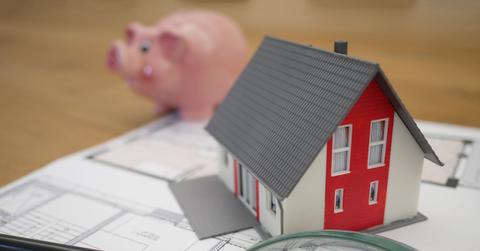How to Avoid First-Time Home-Buying Mistakes
There are many mistakes to avoid when buying a home. First-time buyers should be especially careful when taking out a loan to fund property purchases.
Jan. 2 2022, Published 7:25 p.m. ET

If you’re considering buying a home, you need to watch out for the mistakes that first-time homebuyers are prone to making. Between hunting for a house and closing a mortgage, many missteps can occur.
Every year, millions of Americans purchase homes. Many home purchases are made with loans or a mortgage. Owning a home is the dream of many households. And for most Americans, it’s the biggest decision they'll ever make.
Why people make mistakes when buying a home
The stakes can be high in a home-buying process for a first-time buyer. There can be many uncertainties to deal with, and even a simple oversight can result in long-lasting remorse.

Many mistakes that first-time homebuyers make relate to financial decisions. If you’re going to use a loan, details like the downpayment and interest rates are important to get right. Some people have also regretted their choice in where to live.
5 mistakes to avoid when buying a home
To steer clear of inconveniences and regrets that many homebuyers have experienced, it helps to learn from their mistakes and know the pitfalls to avoid. Many things can go wrong in a homebuying transaction, such as the following:
Biting off more than you can chew.
Failing to shop around for a mortgage.
Ignoring credit score errors.
Failing to plan for a downpayment.
Depleting savings.
Biting off more than you can chew
When you're shopping around for a house, many properties will likely impress you. But the property that catches your eye may be unaffordable, and you could struggle to make the monthly mortgage payments, meet the living expenses, and fund your retirement account.
As you visit properties, pursue mortgage prequalification or preapproval. This will help you understand the price range you can afford, and with that, you can make more targeted property visits. Moreover, mortgage prequalification or preapproval can help you stand out in a competitive market.
Failing to shop around for a mortgage
Never settle for an offer from a single mortgage provider. Take time to shop around, and you’ll be surprised at how different the quotes look, with varying interest rates and mortgage closing costs.
Ignoring credit score errors
If you’re going to fund your home purchase with a loan, you'll need to reveal your credit history. If your credit score is good, you can enjoy favorable rates on your mortgage, which could make the repayment more comfortable.
Conversely, you may have an excellent credit score, but it may look bad because of errors in entries. As a result, you may end up with a mortgage rate you don’t deserve. It's important to check your credit score and correct any errors in it before you apply for a mortgage.
Failing to plan for the downpayment
You'll need to make a downpayment when purchasing a house with a loan. Although it’s possible to buy a house without putting down some money upfront, it’s advisable that you make a downpayment of at least 20 percent of the property’s cost. If your downpayment is too small, you'll need a bigger loan, and its monthly payments may become difficult down the road.
Depleting savings
While making a large downpayment is ideal, you should be careful not to use up all of your savings. You may have an emergency expense, your financial situation may change shortly after signing the papers, or your new home may need expensive repairs shortly after you move in. Therefore, it's important to keep some money just in case.
